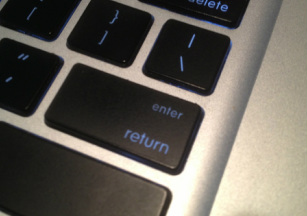
We don't live in straight lines. Rather, our journey in life tends to be a series of triumphs and defeats, advances and retreats, stumbles and awkward moments of brushing the dust off our bruised knees and resuming. That's how life works for me. You, too?
But life's stumbles are not always because of our errors, mistakes and sins. Sometimes — as the saying might go — "stuff happens." There are those moments when our lives go skidding off the road, not because of our poor driving, but because the road itself is hazardous. Surely, those are the moments when we can cry up to heaven and declare, "It's not my fault!" Right?
On the other hand, what good would that do?
When fate and the world conspire against us, and we fail as a result, the process is largely the same as it is when we are at fault. Instead of screaming, we recognize what has happened, we acknowledge any portion of the fault that is ours, and we return back to the path.
That is the process described in this week's Torah portion (Beha'alotecha) for people who, through no fault of their own, were not able to participate in the Passover ritual. In the time when the Temple stood, a person had to be in a state of ritual purity in order to offer the Paschal lamb and partake in the meal. A person who was in a state of ritual impurity because of contact with a dead body, was not permitted to perform this central ritual of the holiday.
This is what the Torah says about such a person:
There were people who were impure because of contact with a human corpse and they could not offer the Paschal sacrifice on that day. They appeared that day before Moses and Aaron. Those people said to them, "We are impure because of contact with a human corpse. Why must we be banned from presenting Adonai's offering at its set time with the rest of the Israelites?" Moses said to them, "Stand by, and I will hear what Adonai commands about you." Adonai said to Moses, "Tell the Israelites that anyone who is made impure by a human corpse, or who is on a distant journey at the time of making the Paschal sacrifice to Adonai, or if any of your future generations are in such circumstances, you shall offer it in the second month, on the fourteenth day of the month, at twilight. You shall eat it with unleavened bread and bitter herbs." (Numbers 9:6-11).
The second interesting thing here is that Moses does not know the answer to the petitioners' question. He has to ask God. According to a classical midrash (Sifre Shelach 113), this is one of the four occasions on which Moses' mastery of the law failed him and he had to consult with God for an answer. (The other incidents are concerning the inheritance of the daughters of Zelophehad in Numbers 27:5, the man who gathered wood on the Sabbath in Numbers 15:34-35, and the blasphemy of the son of Shelomith in Leviticus 24:12). There is something about faultless suffering that is hidden from human understanding. Only God knows why innocent people are punished by unfortunate circumstances, and only God can provide a solution to their plight.
I also am struck by the way that God's answer includes a situation not included in the question. The problem presented by the petitioners and by Moses only concerned people who missed the Passover offering because they were in a state of ritual impurity. God's solution, though, also includes people who were on distant journeys. God does not want us to think only about our own unfortunate circumstance, but also to have compassion for people who face different hardships. We should not plead our own case without considering those who face other difficulties.
Finally, it is interesting that the people who have been forced to miss Passover by an act of God have only one limited opportunity to make up for it. We might have expected God and Moses to say that they could offer their Paschal do-over as soon as they returned to a state of ritual purity, but that is not the case. They only can make the offering on one specific day, called Pesach Sheini, the "Second Passover," that falls exactly one month after the first day of Passover.
What could this teach us? Perhaps it reminds us that we do not get to make up our own rules when we perceive that the rules have failed us. Life is not always fair, but that does not excuse us from acknowledging that we still have an obligation to live within boundaries.
We do get second chances in life. The Torah recognizes that, whether we are at fault or not, we all need to be able to brush ourselves off when we hit setbacks, and to try again. Even more, we should not hesitate to seek a fair resolution when life treats us unfairly. Yet, the Torah also insists that life's setbacks should not dampen our resolve to act with patience, acceptance, compassion, integrity and self-discipline. Even a do-over must be done well.
Other Posts on This Topic:
You are What You Choose to Be
New Year Resolutions

 RSS Feed
RSS Feed
